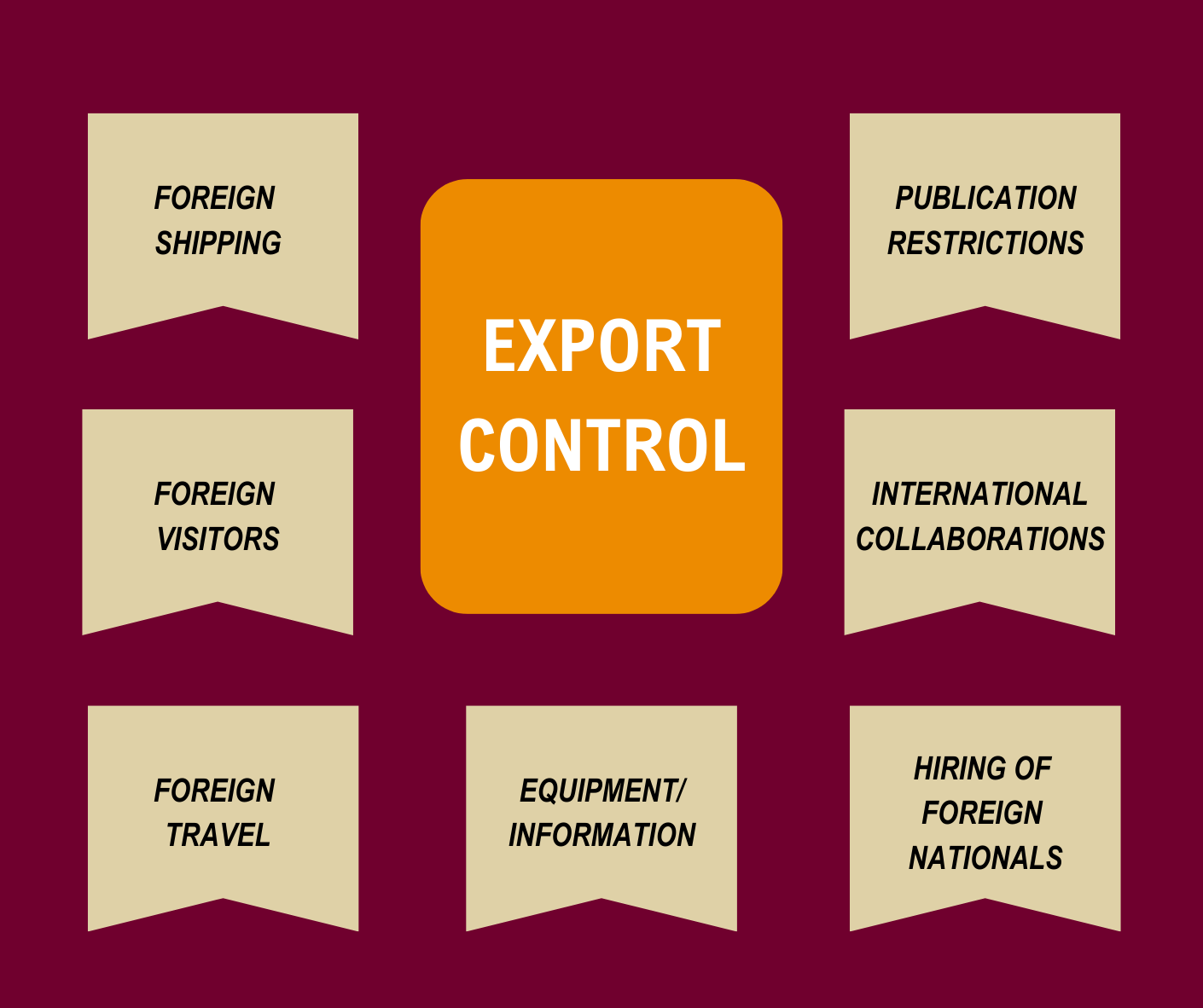Export Control
What Are Export Controls?
United States export controls are a complex set of laws and regulations in place to ensure national security and economic stability, prevent the proliferation of weapons of mass destruction, and further U.S. foreign policy. U.S. export control laws govern the transfer of technology, information, and commodities overseas or to a foreign national within the U.S. These laws cover all types of entities, organizations, and individuals, including the University of Montana, its faculty, staff, students and visitors. As you navigate the export control website, please make use of our glossary for clarity on terms and vocabulary.
What Do Universities Export?
Most commonly, researchers export controlled technical data and information. However, physical items, including samples and prototypes, and any items owned by UM may require additional management.
Export Control concerns may arise not only in research but also in activities unrelated to research, including travel abroad, international shipping, hosting international visitors, business collaborations, and partnerships. It is important for the UM community to be aware of export control regulations and how they impact university activity.
UM Export Control Policy
It is the policy of University of Montana to comply fully with all federal and state laws pertaining to export controls. All UM projects and programs must adhere to the UM Export Control Policy and all applicable laws, including the International Traffic in Arms Regulations (ITAR), Export Administration Regulations (EAR) and all sanctions and embargoes administered by the office of Foreign Assets Control (OFAC). For more information on governing agencies and regulations, go to US Governing Authorities & Regulations.
The Export Control Officer within UM Research Compliance Office (UM RCO) serves as the institutional expert on export control laws and regulations and is responsible for managing controlled research and applying for government licenses on behalf of UM. UM RCO is here to provide export control guidance to faculty, staff and students.
Why Is Export Control Compliance Important?
Export control violations can result in penalties and fines which may apply to an individual, the institution or both. Administrative Penalties include loss of export privileges or suspension and debarment from government contracting. Additionally, monetary fines can be over $1 million per violation and jail time can be up to 20 years per violation.
Don’t Let This Happen to You! (PDF) (external link)
Do Export Controls Apply to Me?
Most campus activities will not be subject to export controls or licensing requirements, as they will fall under one of the following common exclusions: fundamental research exclusion, publicly available or public domain information, or education exclusion. Learn more about the requirements and impacts of export control in grant applications and research.
Export controls can impact University activities on campus as well as abroad, including but not limited to:
- Restricted Research (e.g. nationality restrictions, publication or dissemination restrictions)
- International shipping
- International travel, fieldwork and conferences (see the export control international travel page)
- International collaboration
- Traveling to foreign countries subject to embargo or trade sanctions
- Hiring a foreign national to work at UM under H1-B visa
- Signing a non-disclosure or confidentiality agreement that may not be export control-compliant
- Hosting a foreign visitor/scholar
- Teaching courses abroad/online
If any of the above apply to you, please use the resources on this site to learn more about export control regulations and contact the Export Control office for assistance. Further detailed instructions for self-screening your research and university collaboration for export control compliance can be found here.
Zachary Scott, Associate Vice President of Research Compliance
Todd 305
(406) 243-4755

